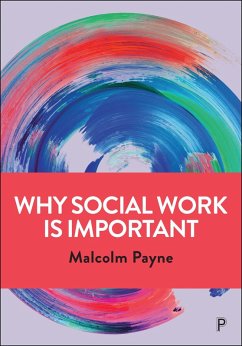
The Culture of Care in Britain since the Second World War (eBook, ePUB)
Versandkostenfrei!
Sofort per Download lieferbar
29,95 €
inkl. MwSt.
Weitere Ausgaben:

PAYBACK Punkte
15 °P sammeln!
This book examines the evolving value of caregiving in Britain, from the welfare state's inception to the present day. It explores the shifts in discourse surrounding care, charting key social, demographic, economic, political and cultural changes which have led to the current 'care crisis'. The author examines five key themes: the tension within institutional Christianity between caring for the marginalized versus maintaining 'respectability'; the secularization of the value of care and its interaction with emerging social divisions; the persistent expectation that women bear the caregiving b...
This book examines the evolving value of caregiving in Britain, from the welfare state's inception to the present day. It explores the shifts in discourse surrounding care, charting key social, demographic, economic, political and cultural changes which have led to the current 'care crisis'.
The author examines five key themes: the tension within institutional Christianity between caring for the marginalized versus maintaining 'respectability'; the secularization of the value of care and its interaction with emerging social divisions; the persistent expectation that women bear the caregiving burden; the economic and social undervaluation of emotional and practical care work; and the challenges facing the care and health sectors. The author suggests that recalibrating the tax system to shift the burden from incomes to profits may be necessary for the survival of welfare systems under these new conditions.
The author examines five key themes: the tension within institutional Christianity between caring for the marginalized versus maintaining 'respectability'; the secularization of the value of care and its interaction with emerging social divisions; the persistent expectation that women bear the caregiving burden; the economic and social undervaluation of emotional and practical care work; and the challenges facing the care and health sectors. The author suggests that recalibrating the tax system to shift the burden from incomes to profits may be necessary for the survival of welfare systems under these new conditions.
Dieser Download kann aus rechtlichen Gründen nur mit Rechnungsadresse in A, D ausgeliefert werden.













